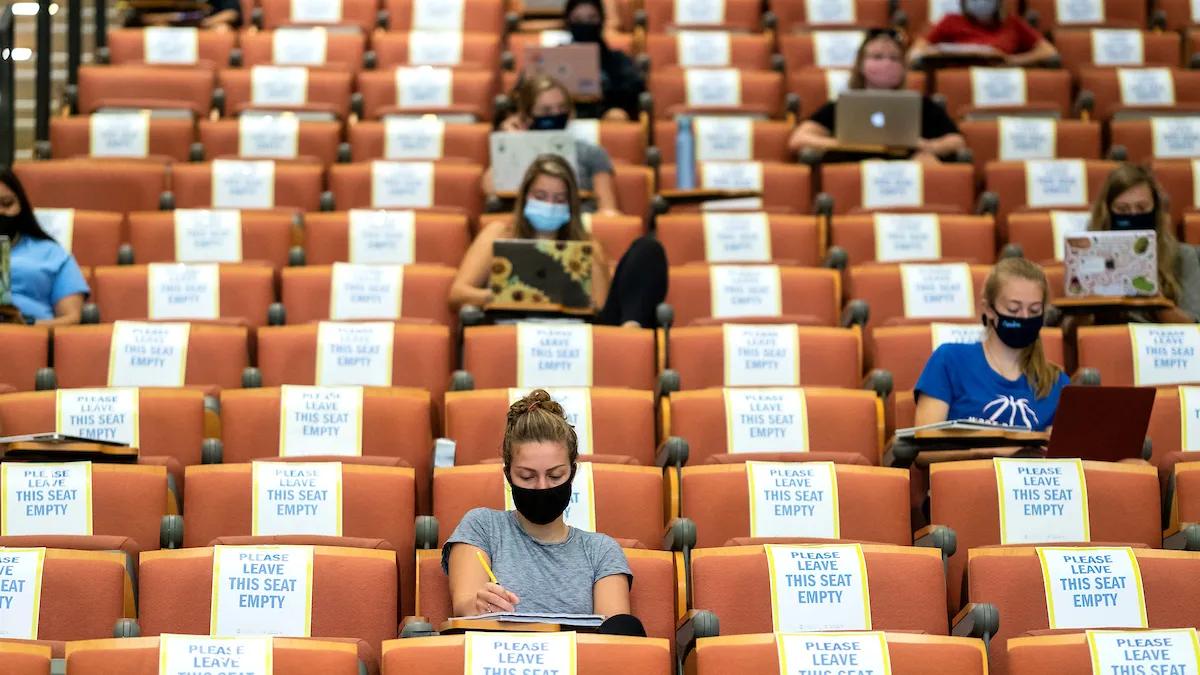Dive Brief:
-
Colleges and universities should test students and employees for the coronavirus twice a week, according to the American College Health Association's latest recommendations.
-
Test results should be available within 24 to 48 hours, the association said. Robust testing is key and should not be replaced by tactics such as screening wastewater for the virus, it noted.
-
The frequency and affordability of coronavirus testing has been a major focus of the discussion around colleges' spring plans. Paying for these measures could prove difficult for some institutions.
Dive Insight:
The Centers for Disease Control and Prevention has provided inconsistent testing guidance to colleges. The CDC initially stated last summer that only individuals who displayed symptoms of the virus, or those who came in contact with it, may need to be screened. It since changed its stance, saying testing students and employees upon their return to campus, and at intervals after that, could also be valuable. It has never recommended universal testing.
ACHA drew attention to the updated CDC guidance in its missive published in late December. And it pointed out that students infected with the virus are often asymptomatic. Schools then should employ "[m]ultilayered mitigation strategies with universal masking, physical distancing of 6 feet or more, and good hand hygiene," along with "robust testing, contact tracing, and expeditious isolation and quarantine processes" to stem the virus's spread, ACHA said.
A recent study of campuses' virus mitigation efforts found that preventing one infection with "extensive" social distancing and mask-wearing cost $170. Adding "routine" laboratory testing raised the cost to between $2,010 and $17,210 per infection prevented, according to the study.
About 30 U.S. colleges use wastewater detection. However, the ACHA noted its limitations. A positive wastewater test indicates the presence of coronavirus, but it can't be used to gauge how many people are infected. Also, not every person who contracts the virus will have it present in their stool, or they may no longer be contagious.
Despite possible cost limitations, several institutions, especially some large public universities, intend to beef up coronavirus testing this spring. Among them are the University of Florida, the University of South Carolina and the University of North Carolina System.










